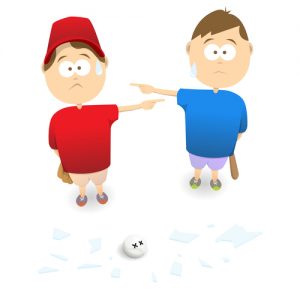 Successful teams thrive when members are free to hold each other accountable by way of a healthy dose of peer pressure. Here’s why it works.
Successful teams thrive when members are free to hold each other accountable by way of a healthy dose of peer pressure. Here’s why it works.
Team dynamics can be tricky. Sure, you might be doing your best to fulfill all your roles and meet your responsibilities, but sometimes your fellow team members aren’t exactly doing the same. And you can’t call them out on it, right? Not without creating waves and causing havoc among your colleagues. Or so you’d think.
What if holding each other accountable not only became acceptable within a team, but encouraged and expected? What if you had such a high level of comfort, trust and respect for each other, you were able to speak freely and help each other maintain focus and productivity? Wouldn’t that be amazing? Not only is this possible, I can help you get there.
What does accountability really mean?
Recently, I’ve been writing about the concepts presented by Patrick Lencioni in his book, The Five Dysfunctions of a Team. He presents a powerful model called the Five Behaviors of a Cohesive Team, and so far I’ve covered the first three behaviors: trust, conflict and commitment. The fourth behavior is accountability.
As Lencioni states, one of the biggest problems in teams or organizations, as a whole, is the inability to hold people accountable. And one of the most powerful ways to foster accountability? Good, old-fashioned peer pressure. This means that you call each other out and confront difficult situations. It can be a messy process to get there, but as he says, “The more you’re willing to hold people accountable, the less you have to.”
Effective teams learn how to overcome the natural inclination to avoid difficult conversations, and instead opt to plunge in and enter the danger zone with one another. Peer-to-peer accountability is actually a good thing when it comes to teams in the workplace. Individuals gain a sense of feeling trusted and respected, take responsibilities seriously, and strive to get things done right.
How do you foster accountability?
Unfortunately, teams don’t learn how to hold each other accountable very easily. It can be a very difficult process. First of all, your team must have already learned to trust each other, embrace healthy conflict, and be fully committed. Only then can you hold each other accountable in a productive way. Once you’re ready, here are some simple ways you can make accountability work in your team:
Trust in each other. When you continuously exhibit trust in each other, you will let your guard down. When you let your guard down, you are able to hold each other accountable.
Ask for help and insight. When you give your teammates permission to speak freely, they can hold you accountable in areas in which you need improvement, knowing you are already receptive to feedback.
Receive feedback openly. Whey team members do offer suggestions or reflect on your performance, assume they have the best of intentions. Remember that you are all pursuing the same team goals and want positive results for your team and the organization.
Ask why. Before you make a judgment and give feedback about someone else’s behavior, pause and give them the benefit of the doubt. Ask ‘why?’ and try to determine the intentions and motives behind their actions. This will keep the level of trust among the team intact.
Embrace discomfort. The most difficult part of peer-to-peer accountability is learning to be open and honest with your team. It’s not easy to be frank and honest when discussing performance and behavior with your colleagues. But it’s worth it, as it’s essential to the success of your team and your organization.
Are you ready for a great team?
Learning to hold each other accountable within a team isn’t easy. But the results are well worth it. Do you work in a team environment that embraces positive peer pressure? Have you experienced success, due to this process? Please share your experiences and leave your comments below. And if you and your team are ready to become a highly functional team, give me a call. I’m ready to help.